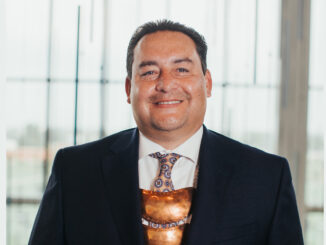Nothing stays the same in the casino business. There is always something new.
It might be a new gaming section, new restaurant, new spa, or an entirely new casino.
It falls to the operator to plan and execute the plan to open something new with maximum efficiency, exposure, and profitability.
It doesn’t matter if you operate a small gaming property or a huge regional casino operation. Someday, at sometime you are going to be faced with developing an opening plan and make that plan happen on time, on budget and with complete confidence that your market will welcome you with something to spend.
When faced with opening, here are nine things not to do to ensure success.
1. Not Going into your plan with Research.
In order to obtain either internal or external funding for your new project, your tribe or company will complete market studies and a due diligence study to give you the best guess that the project will be successful.
Your market study will examine the geographic location of your casino, the population in various demographics and radius bands, population income and other key comparisons that will build a case for opening your casino or amenity.
You will rely on your market study to give you the most detailed information to make your decision whether to go or not go with your project.
It is always amazing to me that the most important part of the decision is often left to gut reaction in place of talking to the customer base and delivering the project that gamblers want.
The simple process of market research is overlooked when opening a restaurant, spa, new gaming expansion, or hotel. What kind of restaurant does your market want? Does the market want a spa or would a new nightclub be more acceptable? What kind of hotel experience does your market want?
Those basic questions are too often left to someone’s intuition.
So, the simple answer is to ask the market what it wants through detailed, exhaustive market research and deliver that product.
2. Not Planning Adequate Technology
It’s a simple fact that technology is hard to execute and expensive. The other simple fact is that in the gaming business not a single project can be approached without a dependence on some kind of expensive technology that will probably be outdated sooner than later.
However, do not fall into the trap of skimping on the hardware, software, and skilled people; you need to add that technology to the new project. It is always a budget buster. It always depends on people with skills and experience that are not cheap.
I have seen many companies build high-cost capital expense projects and argue over the expense of adding the needed technology. I have seen projects built with technology that the vendor installs and then faces training with people who are not experienced enough to understand or deliver the end product.
If you are wise, your top priority when you build and expand is choosing the best technological features that the project requires.
Remember that adding tech staff from top to bottom should happen well before the project is up and running. Having your IT staff and tech staffers participate in planning can make the difference between opening with a flourish and chasing disasters.
3. Not Hiring Early Enough
The challenges of hiring staff or a new project, small or large is daunting. Too many gaming companies hold off on hiring key staff for new projects until the last minute. It is easier on the budget but hard on your new people and project execution.
The new staff will need to be trained and indoctrinated into the project. Holding off until the last-minute puts pressure on the entire operation when new staffers cannot learn quickly enough and become overwhelmed.
Keeping a schedule that allows for training and time to adapt will ensure that your new project opens with confidence.
4. Not Planning for Challenging Hiring
By now casinos have experienced the challenges of hiring and retaining staff; so why would it be any different for a new project opening? When planning for a new project, anticipating a lack of experienced teammates is the new normal.
Since the company is financially committed to opening a bright new amenity or gaming section, planning for hiring makes basic sense. In the new normal of hiring challenges, it pays to anticipate that it will be harder to fill the positions and plan accordingly.
Not Funding Pre-Opening Expenses
Believe it or not, I have witnessed properties that did not use the Pre-Opening expense line items to fund operational expenses prior to the project opening, I do not have a finance background, but the implications are clear. The approach of not funding preopening line items is born of a need for control with senior managers dolling out funds according to whims and reactions.
Not funding preopening shows a clear lack of planning. Understanding the items that need to be expensed prior to opening is accurate programming and planning to make your project a success prior to opening the doors.
5. Not Planning Ahead for Marketing
Marketing a new project starts years and months before the opening. Too many companies have a ready/fire/aim approach to marketing. Operational requirements take a front seat; and the entire focus of the company is pointed to getting the project open. And then, the company decides to take time to consider marketing. This is always a huge mistake.
The time to hire and begin your marketing is not when the horse is bolting out of the gate. I have seen many companies spend capital to open a beautiful project and become surprised when the market does not respond as anticipated.
Revenues are down, there is no awareness and rooms are empty.
Usually, the finger pointing goes to the marketing director who was not given the funds or resources to properly open.
Marketing a new project starts the day you sign the check to commit. Developing branding takes time. Developing the right creative takes effort. Generating awareness through targeted media requires advance planning.
The new project marketing starts by asking your market what it wants and giving it to the market. If you are an existing facility opening a new project, creating a separate full blown marketing plan for your opening with planning schedules and timelines is appropriate and necessary.
Marketing budgets for opening should be part of the preopening budget. Building the shiny new project that is so spectacular the market will beat down your doors without advanced marketing is dead end thinking that will always end up with the company spending multiple amounts more in marketing expenses.
When it comes to new project marketing, the sooner the better and long-term planning is the best practice.
6. Not Creating Contingency Plans
As Mike Tyson famously said, ”Everybody has a plan until they get punched in the mouth.” No matter how detailed your planning is, there is an almost 100% possibility that something will go off track. There are things you can plan for and then there is the unknown.
When you do your planning, best practice is to review what you predict will change and understand how you can react. You’re planning and detailed preparation should always contain contingency plans to help you get over what you can foresee and what you can’t when things go wrong.
7. Not Teaming Up with Regulatory Agencies
Regulatory navigation and the legalities of gambling vary by location and type of project. Viewing the regulatory body in your jurisdiction as a team member is a key to the success of every project. Whether it is a gaming project or non-gaming project, most likely you will have to communicate your plans to your regulatory agency.
Legal and regulatory compliance can run the range of all types of projects. It can be as simple a process as obtaining all necessary licenses and permits. Or a casino project may require developing a comprehensive compliance program with clear policies on responsible gambling, anti-money laundering, and security protocols.
Establishing relationships with regulatory bodies for ongoing communication is the clear winning strategy when considering a new project.
8. Not Focusing on Problem Gaming
Responsible gaming policies should be up front in your planning for new projects at any casino. A new restaurant will require consideration for comped meals. A new gaming section should require training staff to identify and address signs of problem gambling. As you build your new project, partner with local support organizations to provide resources for problem gamblers. Clearly display information and resources on responsible gambling throughout the new project.
A responsible gaming focus from the beginning of project planning will keep you on track to develop positive relationships with your market and guide your property from issues that can delay or stop project development.





